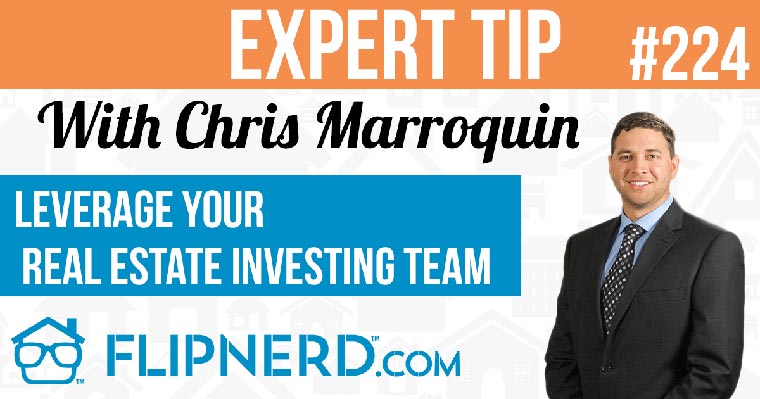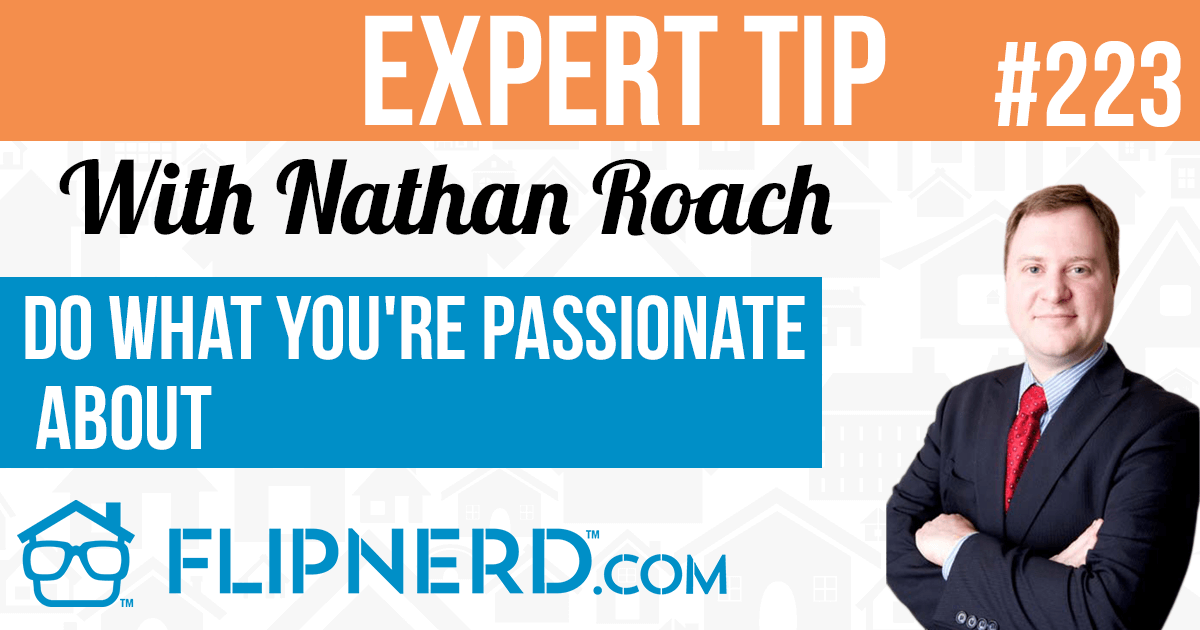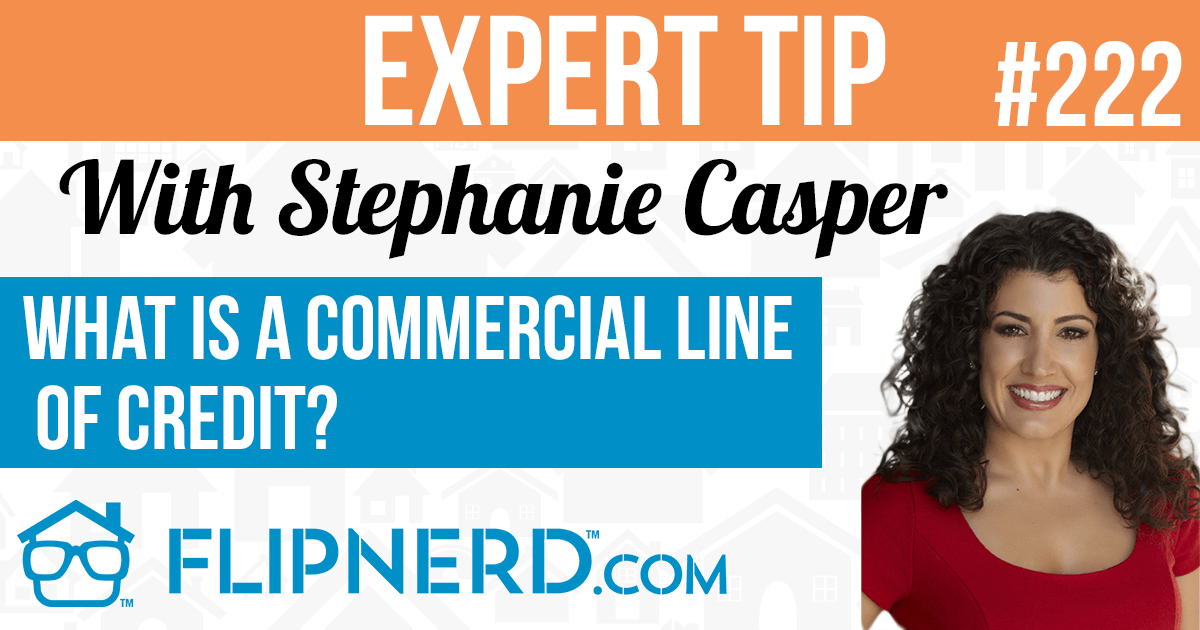Flip Tip Summary
Talking to a prospective home seller is a craft, which includes building trust and rapport, having an agenda, making sure they’re committed to making a decision, and more. Todd Toback is here to share a great tip on this episode of the FlipNerd.com Expert Tip Show.
Flip Tip Transcript:
Mike: Hey, it’s Mike Hambright from FlipNerd.com and we have a quick Expert Tip to share with you from Todd Toback, who’s going to share a tip on how to better talk to motivated sellers.
This Expert Tip is sponsored by RealtyMogul.com, B2R Finance and National Real Estate Insurance Group.
Todd: So Mike, one of the biggest challenges I hear from new real estate investors is, “I don’t know how to talk to motivated sellers.” Or you have people who are sending out mail, 10,000 postcards, and a dozen convert. So why does one guy send out 10,000 postcards and do three deals and another person send out 10,000 postcards and does zero deals? In my experience, it all comes down to the ability to speak and communicate with a motivated seller.
So if you’re a new investor, if you’re an experienced investor, one of the things that you need to do is start measuring your conversions. But you also have to have a system for speaking with sellers. Most investors, they just wing it, right? They just show up and “Hey, this guy’s motivated. He’s going to sign the contract.” And that’s just sloppy.
One of the things I used to do when I worked for Corporate America, we used to plan for the sales call and we used to evaluate the sales call. So in our business, we have a 10 step process that we use that starts with rapport, where we can build a relationship with a seller and you want to be intentional about that.
The second step that we use is setting agenda and asking permission. So we actually tell the prospect what we’re going to do, how the sales process is going to work and then we also ask permission to ask questions.
Third step is qualify. For us to be able to do business with somebody, they need two things. A, they’ve got to have a problem, they’ve got to have a pain and we have to be able to identify that if we’re going to spend any time with them. And they also must be willing to trade a portion of their equity for that. And we have to get that up front. We have that conversation.
Four, is we deal with the decision-makers. That goes under qualifying.
And then five, is review commitments. This is really big and this is where everybody struggles. Is that they get somebody on the phone, again this is not a laydown, this is the warm prospect, and that prospect is going all over the place. And like, “Yeah, well, call me next week,” and “Do this,” and “We’ll speak,” and there’s all these open-ended things going on and it becomes like the never-ending sales call.
Mike: Yeah.
Todd: And if you’ve got a few of those a week, you’re going to be spending so much time spinning your wheels and none of the time with the right prospect. So we always ask our sellers to give us a commitment. “So what’s going to happen next in the sales process? Great. After that happens, give me a yes or a no and let’s decide a date where we’re going to speak next. If this happens, we’ll do business. If this doesn’t happen, we’ll not do business.” And we set clear expectations. At that point, we can formulate an offer and you can go weaving in and out of those steps, but that’s the sales system that we use.
Finally, though, the one thing that we also talk about, I won’t go through our entire sales system, but we talk about getting the seller to close you. And so after you offer a solution . . . and notice, by the way, nowhere in the offer did I have the offer. The offer is last. That’s after I get the commitments and deal with all the objections and basically train them and take them down the path that you want to take them down.
And so the offer comes and you decide, yes, you’re going to do business. No, you won’t. If I sense the answer is yes, you want to say, “What do we do next?” And the seller says, “Well, I guess we should get the paperwork done.” So you’re leading them down the path. You’re telling them what’s going to happen. They say, “I want to do business.” You get the contract signed.
And the last step . . . you got one more time for . . .
Mike: Do it, do it, yeah.
Todd: . . . me on this? We do this little thing that we call the boomerang. All sales is tied to emotion, not logic, right? Sellers don’t sell their house to us for $.60 on the dollar because it makes financial sense. It doesn’t.
Mike: Right.
Todd: They do it because they’re emotional about the property. So what we do at every contract, we say, “Hey, look. Are you sure you want to do this? Are you sure this is a good fit for you?” We basically take it away, right? Boomerang? You throw it. What we do is we wait for that thing to come right back at you because what that does, is that makes the seller bring up all the emotion. “Yeah, you know, I’m just tired of this. My son’s been living on the property for 18 months and nothing’s happened and I can’t believe he’s done this and yada, yada, yada,” and it brings that emotion. It ties in, it reminds them and it seals that decision so they sign the contract and the next day you don’t get a phone call that says, “I’ve changed my mind.”
Mike: I regret it, yeah.
Todd: “I regret it.” So that’s our sales process. Whatever it is, figure out yours, use ours, but you’ll see that your sales will double if you have a system, get commitments and run them through your funnel.
Mike: We’d like to thank Crestar Funding, MidAtlantic IRA, and Renters Warehouse.
Please note, the views and opinions expressed by the individuals in this program do not necessarily reflect those of FlipNerd.com or any of its partners, advertisers or affiliates. Please consult professionals before making any investment or tax decisions, as real estate investing can be risky.










